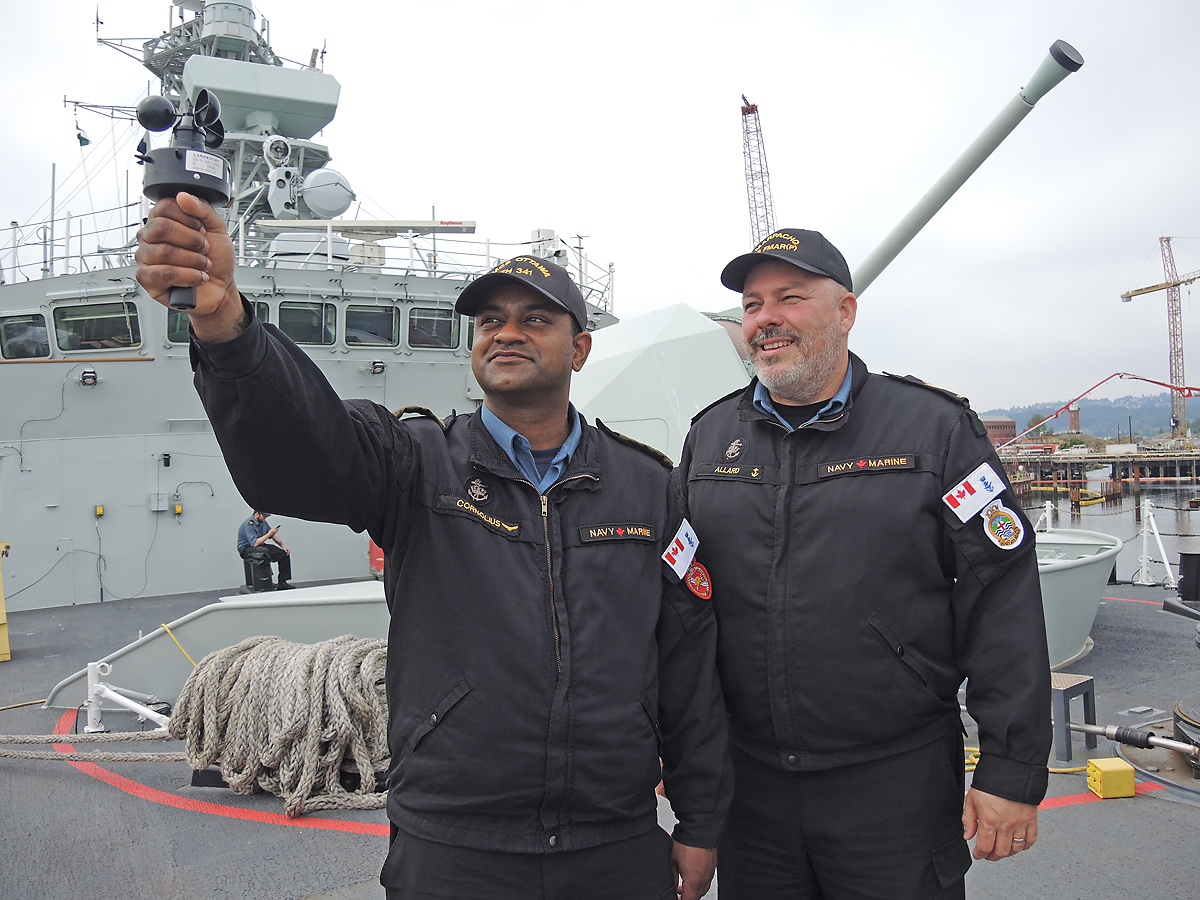OceanBonfire
Sr. Member
- Reaction score
- 363
- Points
- 1,080
The Met Tech trade has existed within the Royal Canadian Air Force for decades, but in 2011 the Canadian Armed Forces (CAF) opened the trade to all elements. Last year, the RCN started seeking candidates for senior positions on frigates. So far, only PO2 Allard and Petty Officer First Class Amanda Pound joined, with PO2 Allard being the first to set sail.

First navy Meteorological Technician sails with HMCS Ottawa - Pacific Navy News
Petty Officer Second Class (PO2) Robert Allard will become the first navy Meteorological Technician (Met Tech) to sail in active service on HMCS Ottawa.
